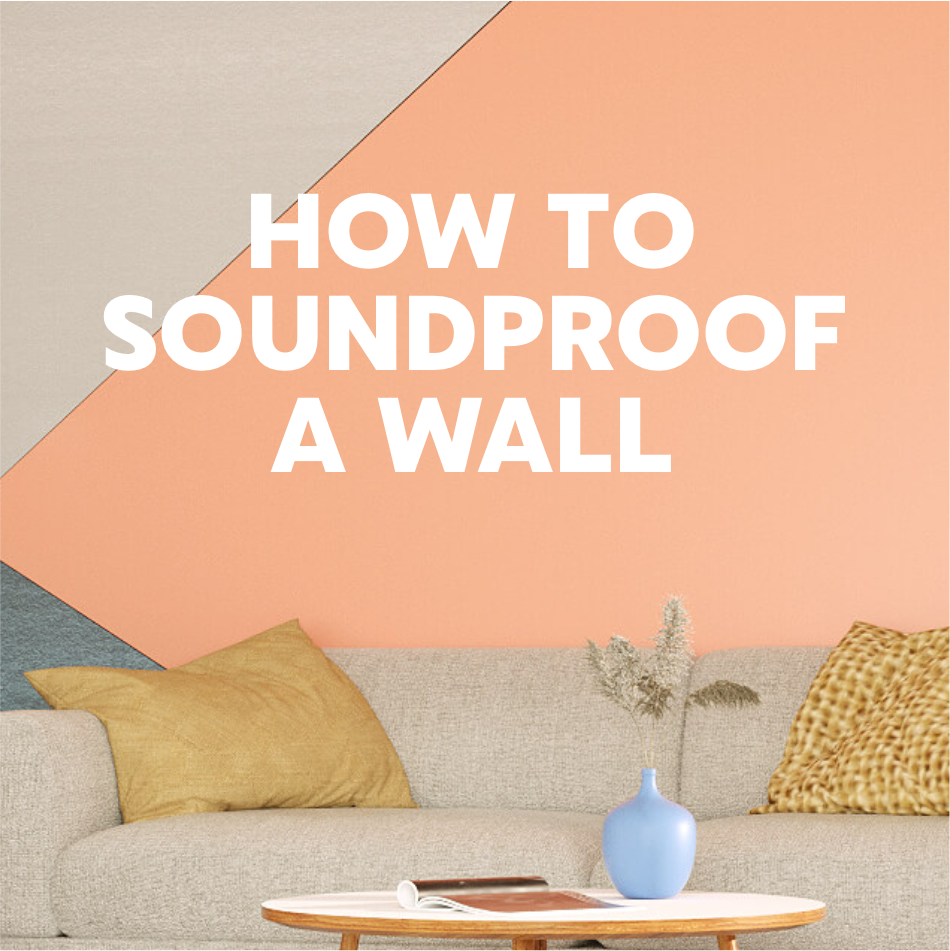A soundproof wall is important for many reasons. If you live in a city, you may want to soundproof your walls to reduce the noise from your neighbours or from traffic. If you work from home, you may want to soundproof your walls to create a quiet space to concentrate. No matter your reason, there are some simple steps you can follow to soundproof a wall that we will unfold in this very article for you.
WHAT IS SOUNDPROOFING?
Soundproofing is the process of Sound Insulation, which is used to block out unwanted noise from entering a space. There are many different ways to soundproof a room, and the most effective method will vary depending on the type of noise you are trying to block out, and the specific circumstances of your space.
Some common methods of soundproofing include:
A. Adding insulation to walls or ceilings
B. Installing soundproof doors and windows
C. Using noise-cancelling curtains or blinds
D. Putting up acoustic panels or foam tiles
E. Sealing gaps and cracks around doors and windows.

WHY YOU SHOULD SOUNDPROOF A WALL : THE TOP 5 REASONS
You might be wondering why you should soundproof a wall. After all, isn't noise just a part of life? While it's true that a certain amount of noise is to be expected, there are many benefits to soundproofing a wall - both personal and professional.
Here are the top 5 reasons why you should consider soundproofing at least walls in your home or office space.
1. To reduce stress levels: Too much noise can be stressful, both mentally and physically. If you work in a particularly noisy environment - think construction site or factory floor - soundproofing your break or lunch room can provide valuable respite from the cacophony of the workday. Alternatively, if you live in a high-traffic area like a city centre, soundproofing the walls of your bedroom can help you get the peace and quiet you need to relax and unwind at the end of the day.
2. To improve productivity: A study by the University of Sydney found that workers in open-plan offices are 66% less productive than those in private offices. This is likely due to increased distractions from ambient noise and colleagues. If you work in an open-plan office and want to increase your productivity, consider soundproofing the walls of your workspace with some simple acoustic panels.
3. To increase concentration: Whether you're trying to study for an exam or complete an important work project, concentration is key. Unfortunately, concentration is also difficult to come by when there's too much noise in the environment. Soundproofing the walls of a room can create a calm oasis where you can focus on the task at hand without distractions.
4. To enhance privacy: There are some conversations that are meant to be private - like medical appointments or counselling sessions. If you work in customer service or another field where you take confidential calls, soundproofing the walls of your office can help ensure that these conversations remain between you and the caller.
5. To improve sleep quality: According to the National Sleep Foundation, 30% of Americans report struggling with sleep at least once per week. One of the main culprits? Noise! If loud sounds are keeping you up at night, soundproofing the walls of your bedroom can help you get the restful sleep you need to feel rested and refreshed during the day.
Soundproofing walls isn't just for commercial spaces or recording studios; it can also be beneficial for homes! By decreasing stress levels, increasing productivity, and improving sleep quality, soundproofing a room can have a positive impact on your physical and mental health. Ready to get started? Contact us today for a free consultation!
SOUNDPROOFING A WALL - WHAT MATERIAL IS BEST?
There are a few ways that you can soundproof a wall, but which material is best? In this blog post, we will be discussing the best materials that will help you soundproof a wall in the most effective and efficient manner.
This ultimate method of soundproofing a wall involves the use of 3 different yet complementing layers:
1. SoundBlanket MLV Noise Barrier
3. Acoustic Foam or Gypsum Board

The first layer i.e., SoundBlanket MLV looks thin, but it's a great noise barrier. Special material absorbs outside noise and blocks sound from escaping. SoundBlanket MLV is recommended as the first line of defence when looking to soundproof a wall.
SoundBlanket MLV Noise Barrier will do its best to treat or absorb any excess noise or bass, but it will leave some of it untreated or unabsorbed. This is where the second layer of BassBloc Bass Absorber will come in handy. BassBloc layer will work to absorb the excess noise left over by the first layer.
Finally, it's time for the third and the last layer i.e., acoustic foam or gypsum board. The pores of acoustic foam or gypsum board prevent sound waves from penetrating them. Furthermore, they can dampen ambient noise by vibrating in unison with oncoming sound waves. These materials can act as the final layer of soundproofing, soaking up any residual noise.
This method is effective at blocking out low frequency noise. In the meanwhile, the components are available at a reasonable cost. Last but not least, you can employ this strategy on walls that have already been constructed.
To Sum Up:
There are a few different methods that you can use to soundproof a wall, but which one is best? It really depends on your needs and what you are trying to achieve.
If you are looking for an ultimate yet affordable means to soundproof walls of your home or office or just some walls of a specific room, then covering the wall with three layers discussed above namely SoundBlanket MLV Noise Barrier, BassBloc Bass Absorber, and acoustic foam or gypsum board may be better suited for your needs.
It will not only soundproof your room from the high frequency noises but also it will free the space from low frequency noises and sound.







